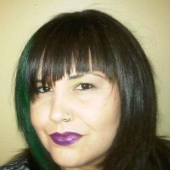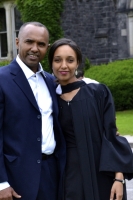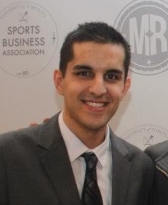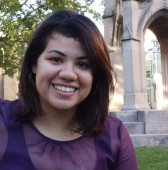Updated April 2, 2014
By Lucianna Ciccocioppo
Seven students* who participated in the Faculty of Law’s first free Law School Admission Test (LSAT) preparatory program for qualified, low-income students—the first one in Canada—have been accepted to law schools, two of them at the University of Toronto in September. [To date, 14 students in total have received admissions to law schools across Canada.]
“This is a huge success story, for the students and for our program,” says Alexis Archbold, assistant dean of students, who led the initiative at the Faculty of Law. “We wanted to help ‘level the playing field.’ We believe law schools should be taking proactive steps to help students overcome barriers and challenges to applying to law school.”
The four-month program, launched last year, had a cohort of 23 students that met once a week to gain LSAT study tips, work through practice tests, network with legal professionals, and learn all about the law school admission process, including financial aid sources.
While LSAT prep courses are not obligatory, most students interested in law school do take privately run programs, which can range in the thousands of dollars, in anticipation of getting higher, more competitive scores and secure a spot in a law school.

Janine Manning
For Janine Manning, a mature student who completed a degree in environmental studies at York University, “U of T’s ‘social investment’ is very empowering for others.”
The incoming Faculty of Law student appreciated the sense of camaraderie in the program, the regular study groups and the availability of the instructor, Bobby Feldman. “It wasn’t just a course. The program helped with the entire admission process—I didn’t realize the amount of work required to successfully apply. The advice on writing your personal statement was exceptional. I used every tip that was offered."
In her personal statement, Manning weaved her story of loss and single-parent upbringing with her determination to help other women of Aboriginal heritage, and with her long list of volunteer experiences advocating for Indigenous rights.

Ledya Yohannes, with her
father Solomon Yohannes
U of T alumna, Ledya Yohannes, who has a degree in international relations, says she was interested in a law career because “it opens a lot of doors.” She found out from Faculty of Law alumna, Renatta Austin, JD 2012, about the law school’s free program.
“Bobby, the instructor, was very helpful. He pushed us and gave us confidence. He made himself available to us, even on weekends. He really helped me prepare for the exam.” She’s joining Janine Manning at the Faculty of Law in September as well.
Yohannes and her sister were raised by their father, “who was always pushing us to succeed." Now she's looking forward to succeeding at law school, and says she's "excited and just a little bit nervous."
Adds Yohannes: "Excelling is not only a gift to myself, but a gift to my father.”

Amir Torabi
It was Amir Torabi’s father who read about the program in the Toronto Star, and gave the newspaper clipping to his son. Torabi, a St. Michael’s University political science alumnus, says he was able to bridge his two passions—sports and constitutional issues—after he met a sports lawyer at a networking event.
“The program has added value; there are a lot of extras offered,” says Torabi. “Some people discovered that perhaps a law career was not for them, so they saved a lot of money from going to law school.” He’s heading to the University of Windsor law school next month.
For Elsa Ascencio, it was her parents’ struggles accessing the legal system after her father’s workplace injury that had her considering a career in law.
“There are very few Hispanic and Spanish-speaking lawyers in Toronto,” says the economics and Hispanic graduate from York University’s Glendon College. She initially started with a private course, but only lasted one month, and it actually discouraged her from applying to law school. “I felt like an outsider. The Faculty of Law’s course was my second chance. Without a doubt, this program was amazing, my best choice,” she says.

Elsa Ascencio
Ascencio deferred her acceptance to the University of Ottawa law school until September 2014 to work for a year, save some money and help her parents. She says she and her family were “shocked at the generosity of the law school” when they heard about this program, one they feel is long overdue.
“The message to the community is that U of T law school is serious and proactive about addressing gaps in the legal system and supportive of what high potential, low-income students have to offer the legal profession.”
Says Ascencio: "We just need the opportunity."
Editor’s note: Tamim Yusufzay was accepted into McGill University law school.
*Sixth student, Renee Thompson, will be attending the University of Newcastle in Australia; the seventh student, Arisa Babiuk, will be attending Dalhousie's Schulich School of Law.




